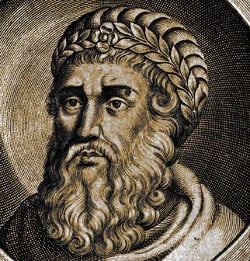A look at death from contemporary, religious, philosophical, and personal perspectives.
Death is the one question that modern science still has yet to answer in the most preliminary way. Religion answers questions about death, but this is largely ignored. Philosophy touches on the subject, but this falls short.
In modern western society, our thoughts on the subject are so thoroughly deficient, that we are not only unprepared, we emotionally flee.
It also produces many outcomes in the modern mind which are mainly on the subconscious level.
Aquinas on Tongues: Psalm 54:9
Thomas Aquinas with his lecture on Psalm 54:9 the division of languages at Babel.
